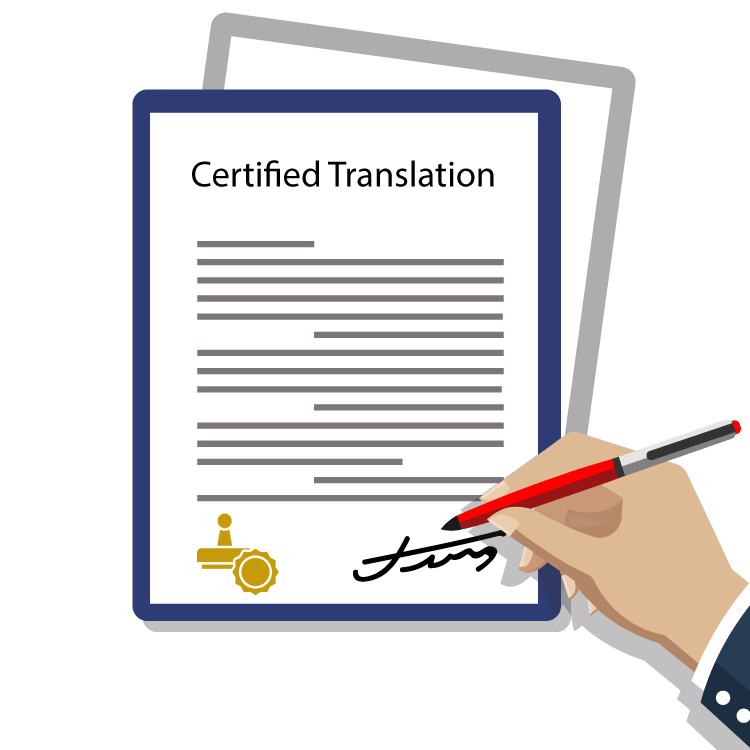In a world of increasing globalization and immigration, the need for certified document translation services cannot be overlooked. This is particularly true for individuals and entities dealing with the United States Citizenship and Immigration Services (USCIS). This article aims to provide comprehensive insight into who needs USCIS certified document translation services and the nature of these essential services.
USCIS Translation Requirements
When it comes to USCIS, one of the primary requirements is document translation. All foreign documents must be translated into English. But it’s not just about translating the documents; the translation must be certified. With certified translation, the translator attests that they have accurately translated the document and are competent in both the source and target languages. This certification gives USCIS the assurance that the translated document is an accurate representation of the original.
The requirements for certified translation are strict. USCIS requires a certificate of accuracy to accompany the translated document. This certificate should indicate the translator’s name, signature, address, and date of certification. It should also include a statement affirming the translator’s competence in both languages and vouch for the accuracy of the translation.
It’s also important to note that USCIS does not accept partial translations. Every single word, including stamps, seals, and handwritten notes, must be translated. This meticulous approach ensures that no information is lost or misrepresented in the translation process.
Does USCIS Require Notarized Translation?
One common question among those dealing with USCIS is whether or not the translated documents need to be notarized. The answer is no; USCIS does not require notarized translations. A certified translation, as described above, suffices.
However, this does not mean that notarized translations are irrelevant. In some cases, they might be required, especially when dealing with foreign governments or legal bodies. Therefore, while notarization is not a requirement for USCIS, it may be necessary for other purposes.
Furthermore, it’s worth noting that while USCIS does not require notarized translations, it does require copies of the original documents. Therefore, applicants must ensure they have both the original documents and their certified translations when submitting their applications.
Common Documents for USCIS
There is a range of documents that USCIS may require, depending on the nature of the application. These documents serve to verify the applicant’s identity, nationality, marital status, academic qualifications, and more.
Some of the common documents required by USCIS include passports, birth certificates, marriage certificates, divorce decrees, school transcripts, and diplomas. For each of these documents, USCIS requires a certified translation if the original document is not in English.
Documents usually translated for USCIS
The services of a certified document translator are typically required for a variety of documents when dealing with USCIS. While the specific documents required depend on the nature of the application, some documents are commonly translated.
Foreign Language Diplomas
Diplomas are often required by USCIS, especially for work-based applications. For instance, H1-B visa applicants need to submit their diplomas to prove they meet the educational requirements for the visa. Where the diploma is in a foreign language, a certified translation is necessary.
Birth Certificates
Birth certificates are fundamental documents required by USCIS. They serve to verify the applicant’s identity and nationality. As such, if the birth certificate is in a foreign language, it must be translated by a certified translator.
Marriage Certificates
Marriage certificates are another common document translated for USCIS. They are especially important for spousal visa applications. Like other documents, if the marriage certificate is in a foreign language, it must be translated by a certified translator.
Divorce Decree/Divorce Certificate
Divorce decrees or certificates are necessary for applicants who were previously married but are now divorced. They verify the dissolution of the previous marriage. If the divorce decree or certificate is in a foreign language, it must be translated by a certified translator.
School Transcripts
School transcripts are often required for work-based and student visa applications. They serve to prove the applicant’s educational background. If the school transcripts are in a foreign language, they must be translated by a certified translator.
Can I Translate My Own Documents for USCIS?
While it might seem like a good idea to translate your own documents for USCIS, especially if you are proficient in both the source and target languages, it’s not recommended. USCIS prefers that translations be done by a third party. This is to avoid potential bias and ensure the accuracy of the translation.
Moreover, translating your own documents might raise questions about your competence in both languages. Unless you are a certified translator, USCIS might not accept your translations. Therefore, to avoid potential issues, it’s advisable to use the services of a certified translator.
In conclusion, anyone dealing with USCIS and has documents in a foreign language needs USCIS certified translation services. The strict requirements set by USCIS for document translation underscore the importance of these services. Therefore, whether you are applying for a visa, a green card, or citizenship, ensure your foreign documents are correctly translated by a certified translator.
Keep in mind that while USCIS does not require notarized translations, other bodies might. Therefore, familiarize yourself with the requirements of all the entities you are dealing with. Above all, remember that accurate document translation is crucial, so always choose a reputable and experienced USCIS translation services.
The Spanish Group translates any document into over 90 languages. This applies to USCIS translation as well as any of our other many language services, including legal, medical, and technical translations.




